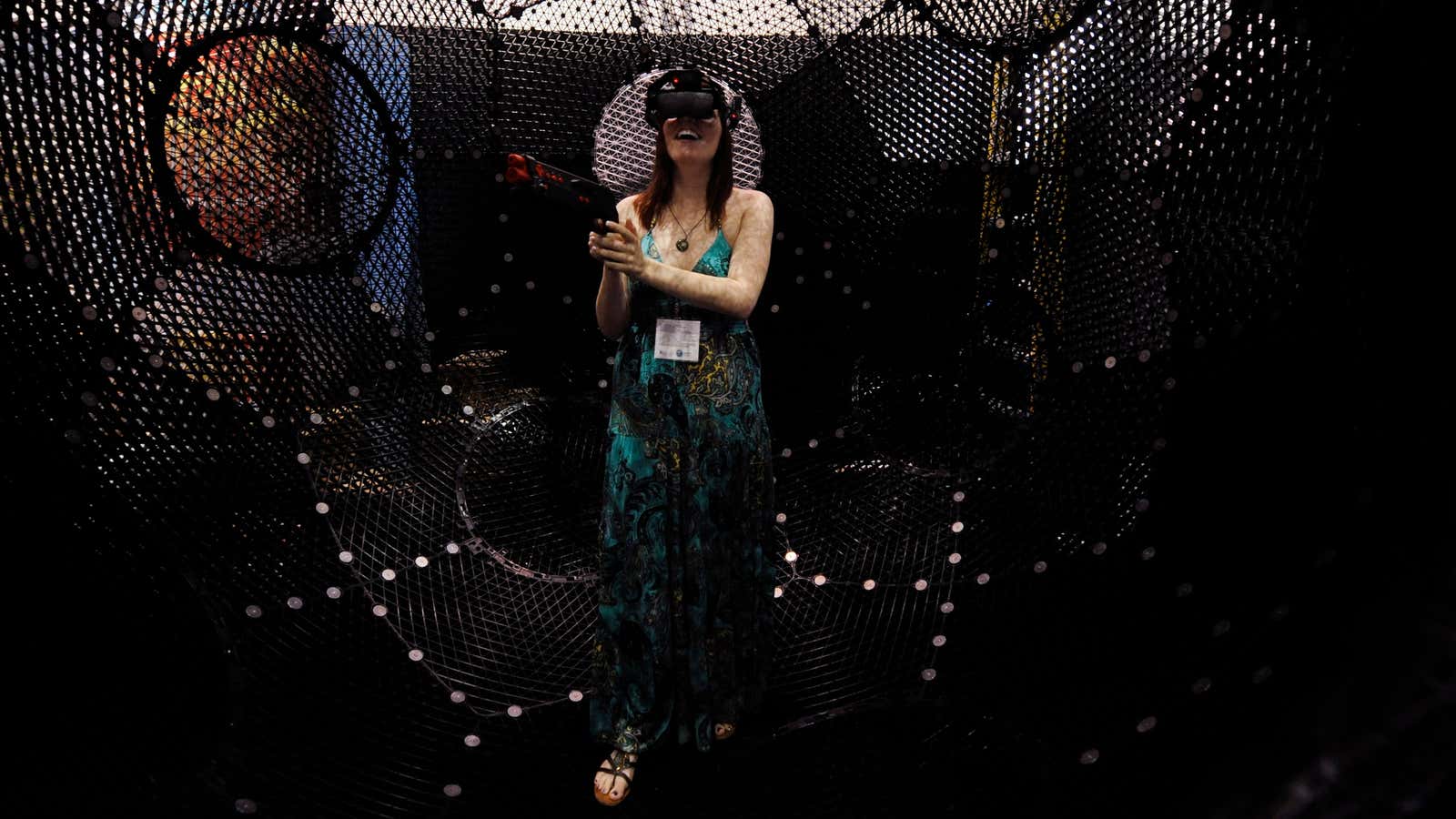Virtual reality could make it to the mainstream soon, but no need to brace for a dystopian nightmare. It turns out that immersing ourselves in simulations and games—if we do it right—could actually make us better people.
In 2013, a Stanford study (pdf) found that virtual reality (VR) scenarios can have a positive influence on your real-world behavior. Researcher Jeremy Bailenson put participants in VR simulations that either made them flying superheroes or took them on a helicopter ride. The participants were then split again, with half of each group simply touring the city and the other half being sent on a rescue mission—tracking down a missing diabetic child in dire need of insulin.
While the study was small, the defining factor that changed the participants’ behavior was the more game-like aspect of the experiment—the fantasy of being a superhero. Researchers saw an uptick in real-world do-gooding (helping a researcher pick up a cup of spilled pens) in those that had been given a super power, with the “superheroes” lending a hand more quickly, regardless of whether they had participated in the rescue mission during the simulation.
While the benefits of these VR scenarios are still emerging—another study by Bailenson found that simulating a visual disability makes participants more eager to aid the truly disabled—it’s also true that VR can have some scary implications, Bailenson told MIT Technology Review. “I think of VR like uranium,” he said. “It can heat homes and destroy cities. One can easily point to the addictive aspects of the technology as a downside. The question is, how will we use it?”
The answer depends on who you ask—the idea of readily accessible and fully immersive video games is a little scary, harkening back to dystopian visions from 20th-century science fiction. But although the leaders in VR are now focused on gaming, they’ll likely branch out to bring the improved technology into other arenas, such as education. A recent analysis of VR in the classroom showed that simulations could help students comprehend new subjects (paywall). As with augmented reality, which is increasingly present in the dawn of Google Glass, the downsides of virtual reality—including excessive gaming and pervasive advertisements—could still be outweighed by potential benefits.




